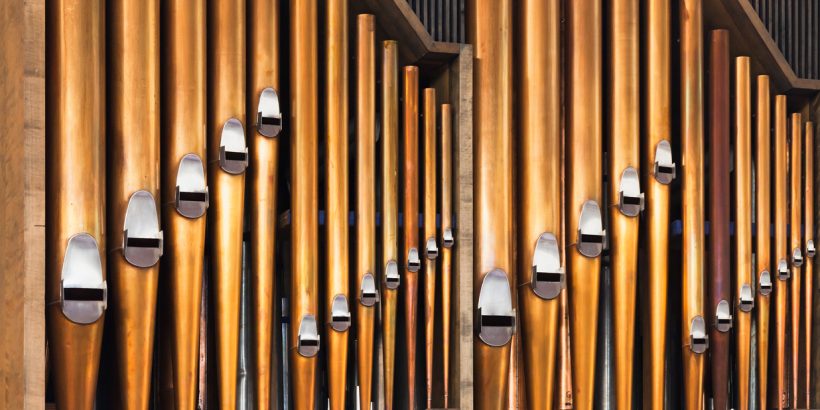The Pipe Organ as a Site for Musical and Technological Innovation
RMA Study Day Report
On 6th September 2024, City St George’s, University of London hosted an RMA Study Day intended to create space for discussion about how an instrument often associated with the archaic is undergoing a renaissance this century, both in terms of new technology and increasing popularity among contemporary composers. The day comprised ten papers and a closing panel discussion, attracted around thirty-five attendees, and was rounded off with a concert for organ and electronics at a nearby church in the evening.
The breadth of topics was impressive, ranging from research in historical areas, including medieval organs and novel nineteenth-century pipe design, to contemporary issues, like devising more user-friendly consoles and the challenges of integrating digital signal processing into performance and recording. There was also a good balance between theory and practice, with organ builders, organists, organologists, and composers all providing unique perspectives on the same instrument. This synergy set the tone for the event, which was characterised by a lively exchange of ideas among enthusiastic participants.
The conference highlights were the keynote address, given by Hans Fidom, and the demonstration of a revolutionary organ valve system by Tony Decap. Fidom is currently Professor of Organ at Vrije Universiteit Amsterdam, and also leads the research programme at Het Orgelpark. Fidom made a compelling case for the importance of heterogeneity in today’s organ community, and with a nod to Sir Thomas Moore advocated reclaiming the ‘musical commons’, emphasising the pipe organ’s secular origins over the sacred contexts in which it is usually encountered. Decap’s demonstration of his company’s new smARTvalve echoed this, as for several generations they have built automated dance organs, but recently pivoted in another direction. When connected to a 3D keyboard, Expressive E’s Osmose in this instance, the valves facilitate ADSR envelope manipulation, essentially allowing a pipe organ to be played with full touch sensitivity like a synthesiser.
It was nice to be able to finish with some music, courtesy of Lauren Redhead and Alistair Zaldua, especially as Redhead had given a paper earlier on about her artistic practice. The recital was on the historically significant J. W. Walker instrument at St John the Evangelist, Islington, and consisted entirely of recent music by British composers. This neatly bookended the Study Day, after which there was an informal dinner at a local Italian restaurant for people who had contributed. Immediate feedback was very positive, and it is hoped that a similar event might be repeated in the future.
John Henry Forster

